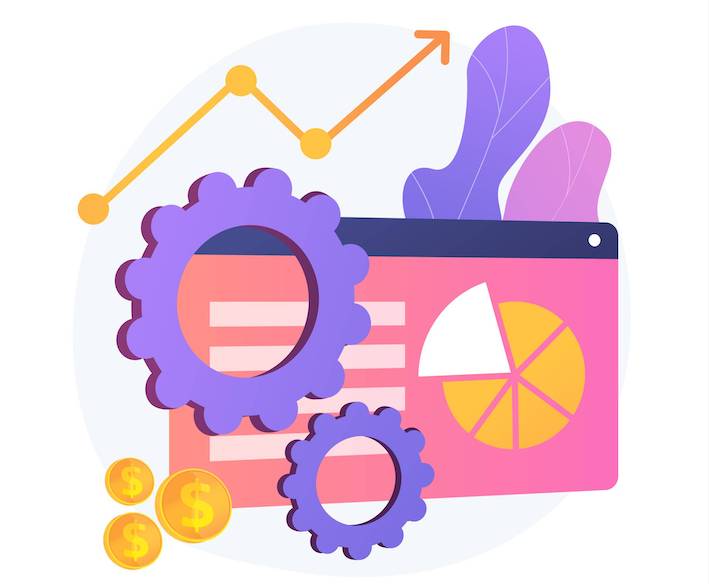What Is FinOps?
FinOps (short for Financial Operations) is a set of practices and principles that aim to optimize cloud cost management and financial accountability. It’s a relatively new concept that emerged with the rise of cloud computing as organizations realized the need for more efficient cloud cost management strategies.
FinOps involves collaboration between various stakeholders, including developers, operations teams, finance departments, and business leaders, to improve cost efficiency and optimize the use of cloud resources. The main goal of FinOps is to help organizations achieve the right balance between cost optimization, innovation, and speed of delivery.
Some of the key principles of FinOps include:
- Cost awareness: Everyone involved in cloud infrastructure and services must understand the cost implications of their actions.
- Cost optimization: Continuously monitoring and optimizing cloud costs to ensure that the cloud services are used efficiently.
- Collaborative approach: Encouraging cross-functional team collaboration to manage and optimize cloud costs.
- Accountability and governance: Establishing policies and governance frameworks to ensure financial accountability and regulatory compliance.
- Continuous improvement: Continuously improving cloud cost management practices through data analysis and process optimization.
Why FinOps Is Critical to Your Organization
Cloud Cost Optimization
Cloud cost optimization is the process of managing and reducing cloud computing costs. It involves analyzing an organization’s cloud usage and identifying areas where costs can be reduced without affecting performance or functionality. Cloud cost optimization is important for organizations because cloud computing can be a significant expense, and without proper management, costs can quickly spiral out of control.
To optimize cloud costs, FinOps provides a framework for monitoring and analyzing cloud usage, identifying areas of inefficiency, and optimizing cloud resources accordingly. Some common strategies for cloud cost optimization include:
- Right-sizing: Adjusting the size of cloud resources to meet the actual workload demand. For example, scaling down or turning off resources during off-peak hours or using reserved instances.
- Auto-scaling: Automatically scaling resources up or down based on demand to ensure efficient resource utilization.
- Cloud-native tools: Utilizing cloud-native tools, such as AWS Cost Explorer or Azure Cost Management, to analyze cloud usage and identify opportunities for cost savings.
Cost Allocation
Cost allocation is the process of assigning cloud computing costs to the different teams, departments, or projects that are using those resources. Cost allocation is important because it helps organizations to understand who is using cloud resources and how much each team or project is spending. This information is critical for budgeting, forecasting, and financial planning purposes.
Some common strategies for implementing cost allocation in FinOps include:
- Cost allocation tags: Implementing cost allocation tags that enable the identification and tracking of cloud usage and costs, ensuring that costs are allocated accurately and fairly.
- Shared services: Identifying shared services or resources that are used by multiple departments and allocating costs based on usage.
Accurate Forecasting
Accurate forecasting is the practice of predicting future cloud usage and costs based on historical data and other factors. Accurate forecasting is important because it helps organizations to plan and budget for their cloud costs and to avoid unexpected expenses.
FinOps provides a framework for accurate forecasting that includes the following:
- Data analysis: FinOps analyzes historical cloud usage data to identify usage patterns and trends. By analyzing usage data, organizations can understand their cloud usage better and predict future cloud spending more accurately.
- Resource allocation: FinOps involves allocating resources based on actual usage patterns and trends. By allocating resources based on actual usage, organizations can optimize resource utilization and avoid unnecessary cloud spending.
- Cost modeling: FinOps involves developing cost models that enable organizations to predict future cloud spending based on various scenarios. By developing cost models, organizations can predict future cloud spending and plan for various scenarios, enabling effective budgeting and strategic planning.
A Unified Ecosystem
Creating a unified ecosystem is an essential aspect of FinOps that fosters collaboration, accountability, and transparency among different teams and stakeholders within an organization. A unified ecosystem enables organizations to optimize cloud costs effectively and efficiently, ensuring that everyone is aligned on cost optimization goals and working towards the same objectives.
FinOps provides a framework for creating a unified ecosystem that brings together various stakeholders, including finance, operations, and development teams. Some common strategies include:
- Transparent communication: FinOps encourages transparent communication among different teams and stakeholders, enabling better cost transparency, financial accountability, and decision-making. By fostering transparent communication, organizations can ensure that everyone is aligned on cost optimization goals and working towards the same objectives.
- Governance: FinOps provides a framework for establishing policies and governance frameworks to ensure financial accountability and regulatory compliance. By establishing governance frameworks, organizations can ensure that cloud costs are managed effectively and efficiently and everyone is held accountable for their actions.
Best Practices for Implementing FinOps
Plan for FinOps Before You Migrate to Cloud
FinOps should be considered from the very beginning of a cloud migration project. This includes developing a cloud cost management plan, identifying cost drivers and cost allocation strategies, and building a cloud cost optimization framework.
By planning for FinOps before migrating to the cloud, organizations can optimize cloud costs from the start, avoid unnecessary cloud spending, and ensure that the cloud infrastructure is aligned with business goals and objectives.
Don’t Sacrifice Value for Savings
While cost optimization is a critical aspect of FinOps, it should not come at the expense of value. Organizations should strive to balance cost optimization with innovation and speed of delivery, ensuring that cloud services are used efficiently and effectively. By prioritizing value alongside cost optimization, organizations can achieve both cost efficiency and business growth.
Build FinOps Into Your Organization as an Ongoing Practice
FinOps should be an ongoing practice that is integrated into the culture and processes of an organization. This includes providing training and education to stakeholders, implementing continuous monitoring and optimization practices, and fostering cross-functional collaboration between teams.
By building FinOps into the organization as an ongoing practice, organizations can achieve continuous improvement in cloud cost management practices and maintain financial accountability and compliance with regulations.
Set Clear Responsibilities
FinOps requires setting clear responsibilities to ensure that everyone involved in cloud infrastructure and services is held accountable for their actions. This includes identifying clear roles and responsibilities for each stakeholder, establishing policies and governance frameworks, and implementing cost allocation strategies.
Conclusion
In today’s cloud-centric world, organizations increasingly rely on cloud infrastructure and services to power their operations. While cloud services offer numerous benefits, including scalability, flexibility, and cost efficiency, they can also be a significant source of cost and financial complexity if not managed effectively.
By implementing FinOps principles and practices, organizations can achieve cost savings, reinvest those savings in innovation and growth, and maintain financial accountability and compliance with regulations. FinOps enables organizations to achieve the right balance between cost optimization, innovation, and speed of delivery, ensuring that cloud services are used efficiently, and costs are optimized.
Featured Image Credit: Provided by the Author; Source freepik.com; Thank you!

















